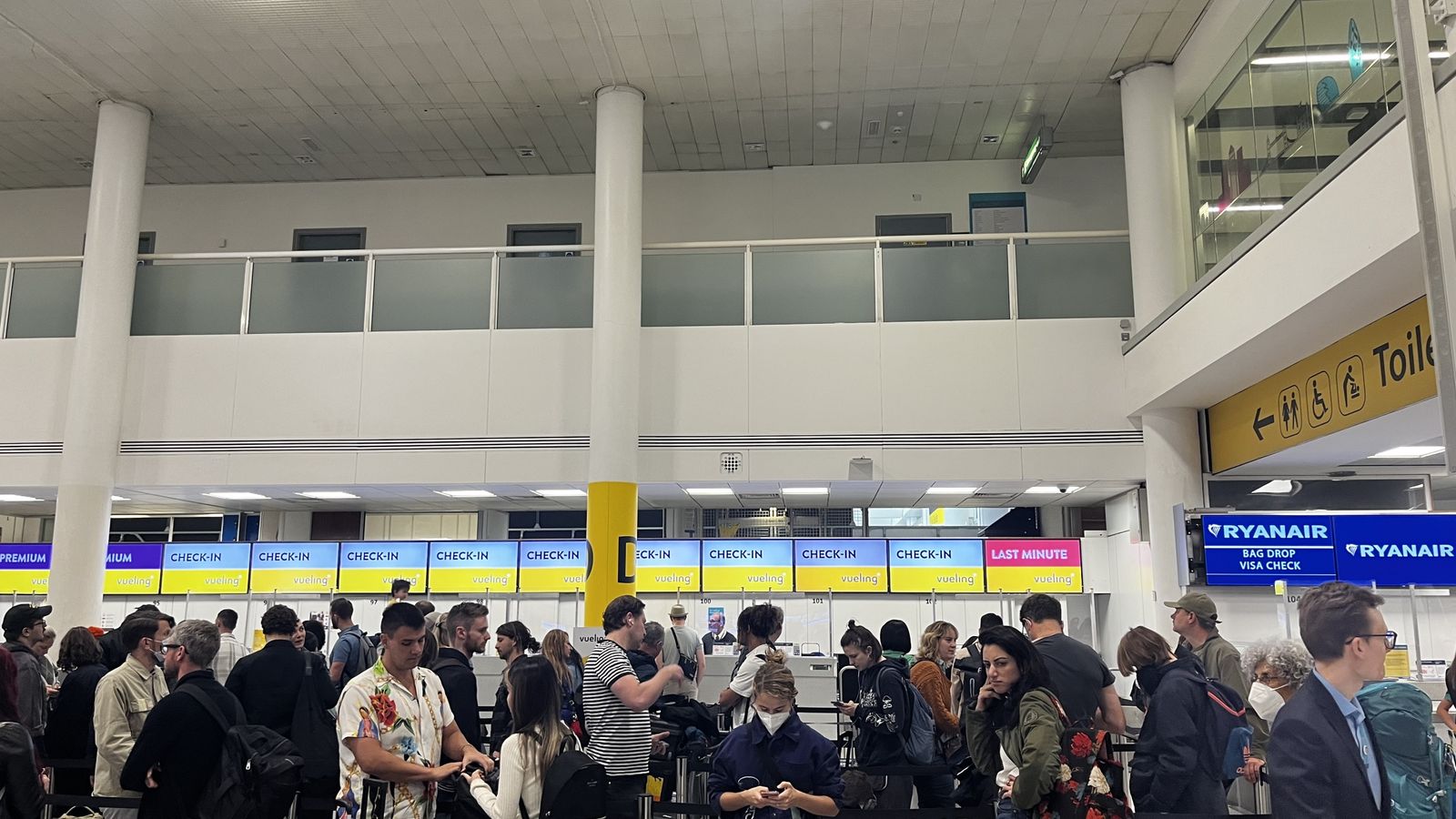As airlines are told they must have “deliverable” schedules in a bid to avoid a repeat of the recent chaos at airports, one company has seemingly enjoyed a boost from the queues.
WH Smith, which has a major presence at UK airports, reported on Wednesday that it had seen bumper travel business trading during its third financial quarter to 11 June.
The end of May and early June saw tens of thousands of holidaymakers affected by delays and cancellations as airlines and airports grappled staff shortages.
The problems have existed since Easter when flight volumes rose after the end of COVID restrictions.
Following a hearing by MPs into the causes of the half-term mayhem on Tuesday, the Department for Transport (DfT) and Civil Aviation Authority (CAA) issued a joint letter to the aviation industry calling on companies to take “all possible steps” to “avoid the unacceptable scenes we have recently witnessed”.
It stated that earlier cancellations are “better” than axing flights on the day of departure.
The Independent’s travel editor Simon Calder, who was among the witnesses giving evidence to the parliamentary committee, told Sky News that British Airways and easyJet were the two airlines giving the most cause for concern.
‘Blatant flouting of consumer rights’ among airlines as flight chaos threatens summer getaway
Nintendo urged to launch investigation into ‘drift’ problem affecting Switch Joy-Con controllers
Pound falls to lowest level since COVID crash after Nicola Sturgeon claims ‘mandate’ for Scottish independence referendum
“British Airways and easyJet are cancelling flights in extraordinary numbers”, he said.
“BA have cancelled more than 100 short haul, European and domestic flights today but they cancelled those generally two or three weeks ago and gave plenty of warning.
“EasyJet cancelled 40 flights to and from Gatwick today and they quite often gave a few days and maybe in some cases, a few hours’ notice.
Please use Chrome browser for a more accessible video player
“The letter… is aimed squarely at easyJet – the part which says you’ve got to have a ‘deliverable’ schedule.”
He said there were lots of instances, he added, of the airline cancelling one of its frequent daily services and moving passengers onto different flights.
Both airlines, which cut staff after international travel was grounded in 2020 because of the COVID pandemic, told the MPs they were sorry for the disruption and working hard to bolster their schedules.
Under questioning, BA’s representative refused to admit that its decision to axe more than 10,000 workers had damaged its ability to deliver services but it, like easyJet, argued that hiring efforts were being hampered by big delays in securing security clearances.
The return of passenger volumes since March has come as a welcome relief for airports and their associated businesses.
WH Smith said its UK airport shops performed better than rail when compared to 2019 levels – likely a consequence of many commuters continuing to work from home rather than offices.
The company said it expected its full-year performance to reach the higher end of analysts’ forecasts because of the travel boost.
It credited the recovery in its North American and British markets, with its total travel business revenue up 123% from pre-pandemic levels in the quarter.
However, it said sales in its high street stores continued to lag those seen in 2019.
Shares were almost 7% up at the open.






















